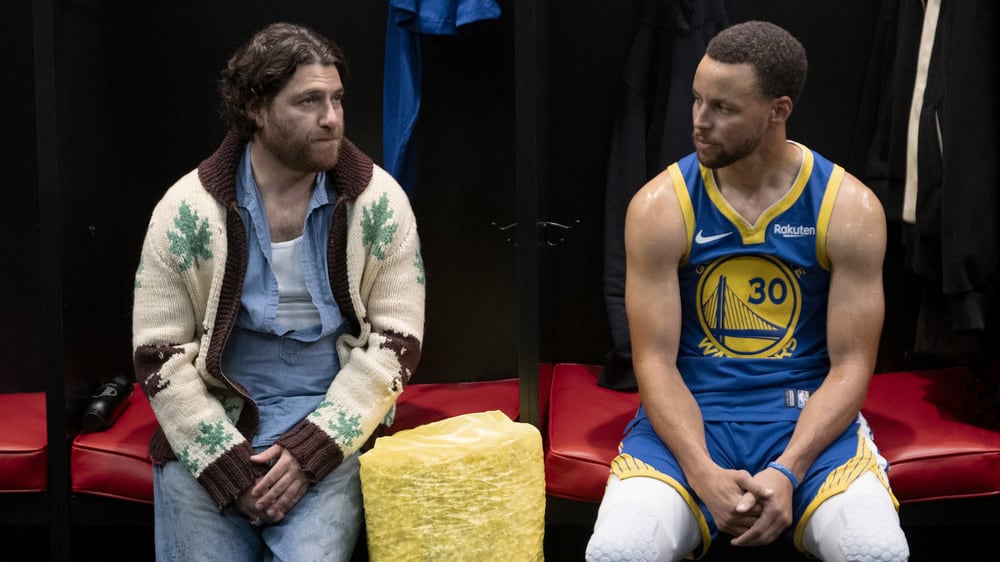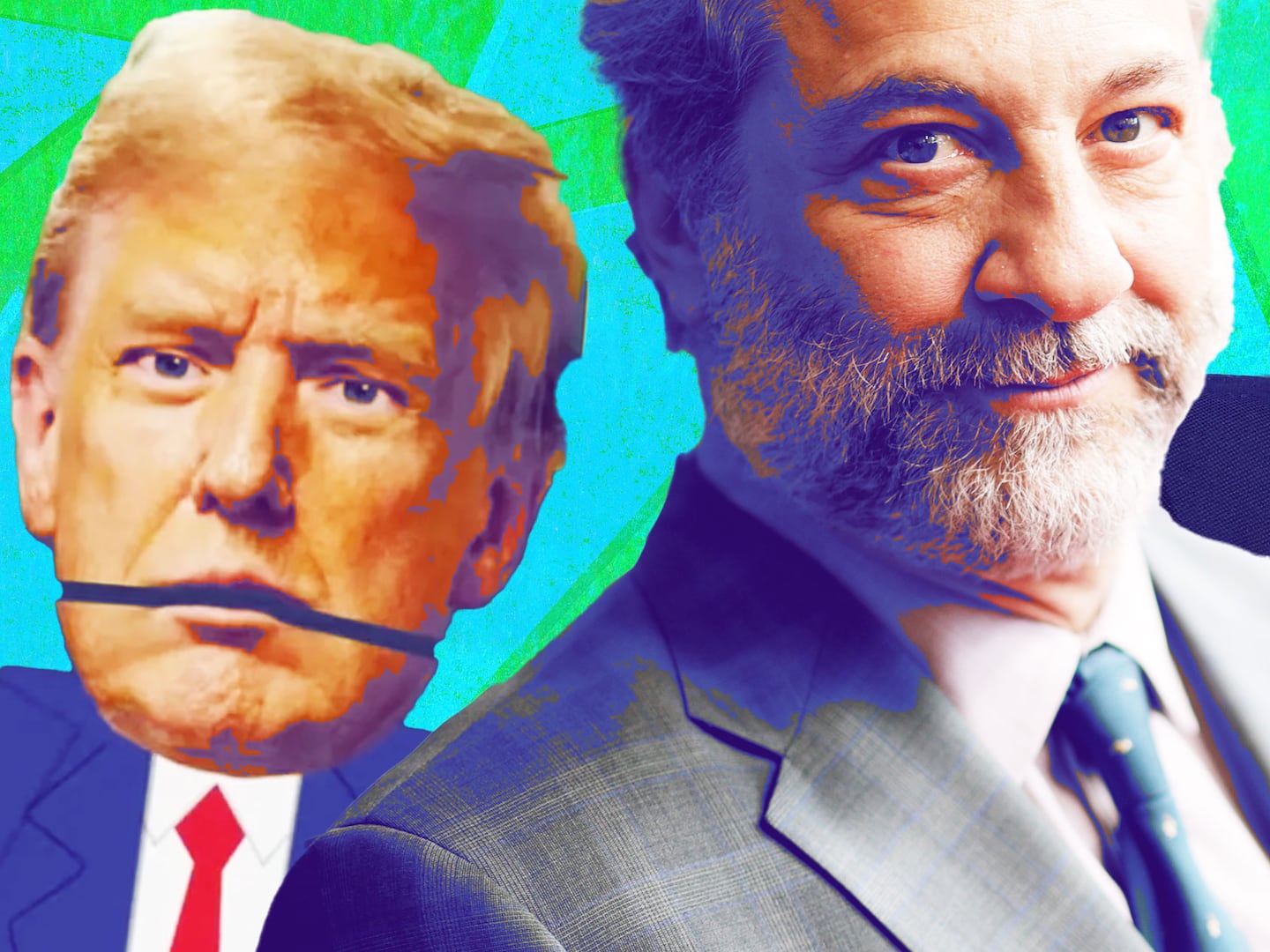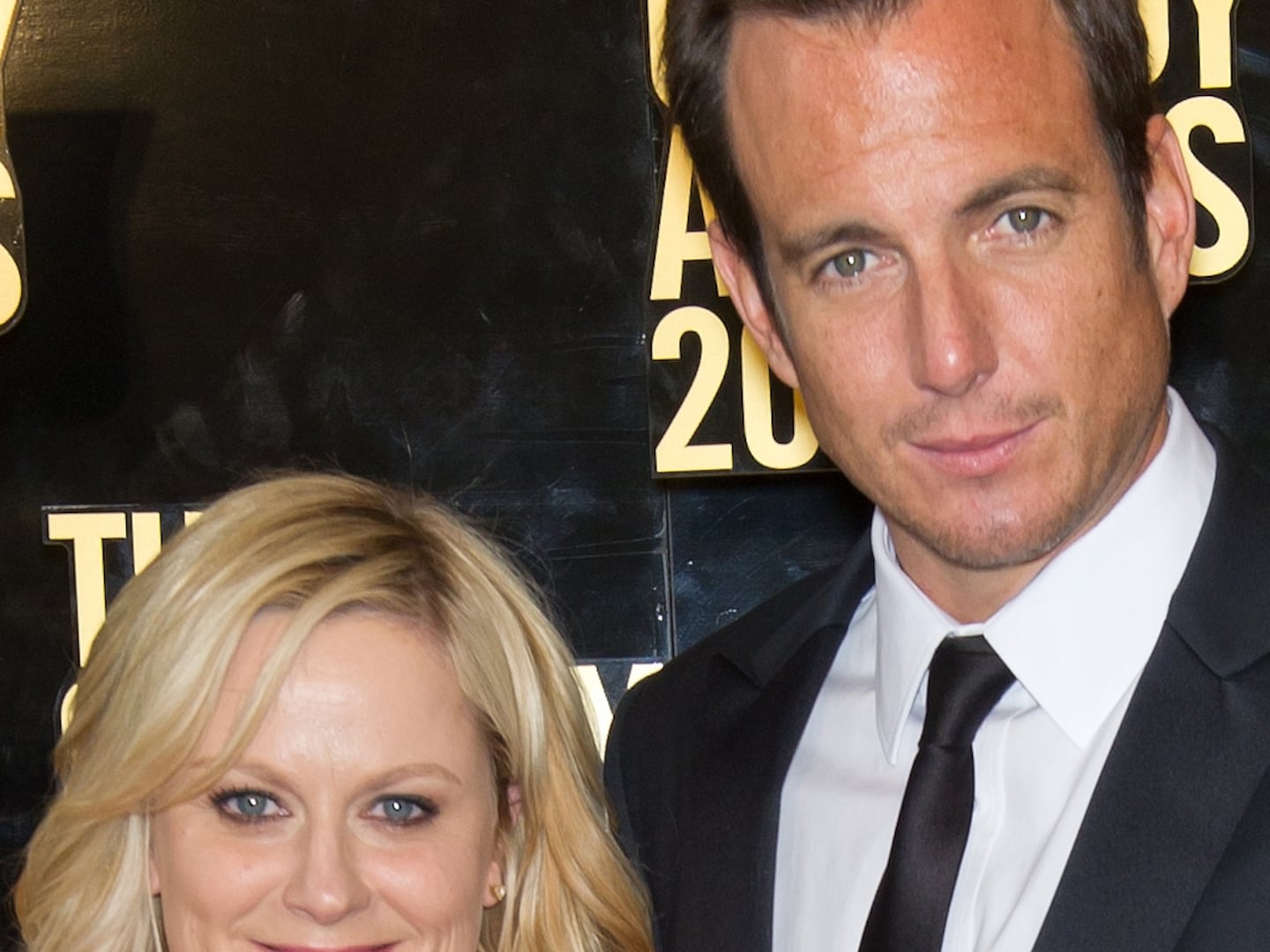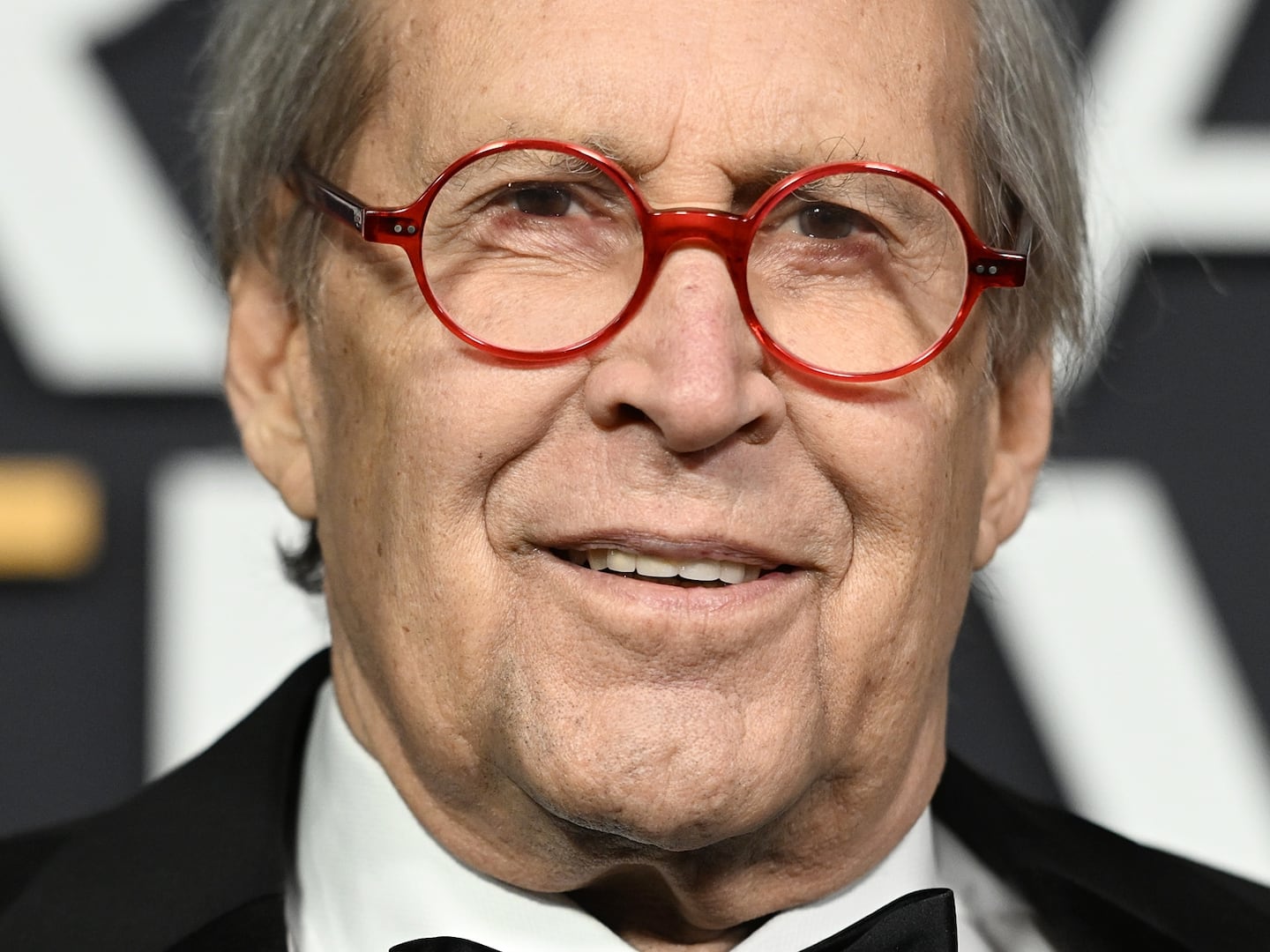With such a scarcity of laugh-out-loud broad comedies in movie theaters, it’s only natural that the streaming limited series would attempt to pick up the slack.
David Wain, former The State star and director of the new Peacock comedy Mr. Throwback, is familiar with both sides of this divide, having made Wet Hot American Summer as well as its Netflix prequel and sequel series. But neither Wain’s comic chops behind the camera nor the rest of the talent behind this mockumentary sitcom can mitigate the feeling that Mr. Throwback is hybridizing two distinctly different forms, in a way that’s sometimes more distracting than innovative.
Basically, the show, which premieres August 8 on Peacock, mixes a sitcom premise with a complicated season-long arc that feels more like a movie idea. The sitcom part is fairly inspired: Danny Grossman (Adam Pally) was a child basketball prodigy, until an unusual scandal out of his control cut off his blossoming career. Meanwhile, one of his teammates emerged from his shadow to become, well, massively successful NBA player Stephen Curry, who plays a fictional version of himself.
Stephen and Danny’s childhood friend Kimberly (Ego Nwodim) has stuck with Steph all these years, and manages his vast empire (becoming an expert in “Stephenomics,” as she explains in one episode). An uneasy reunion is in the offing when Danny, recently divorced from his wife Samantha (Ayden Mayeri) and desperate to help support his daughter Charlie (Layla Scalisi), tries to insinuate himself back into Steph’s life.

Stephen Curry, Ego Nwodim, and Adam Pally
PeacockUnfortunately, a higher concept awaits: In a panicked attempt to convince Steph that his intentions are honorable, Danny tells a major lie that he must maintain as the show goes on—not especially convincingly, even for a broad comedy. But Steph, who is trusting and caring to a fault, welcomes Danny back into his circle. (This is not a particularly satirical portrait, though the show does make up a few bizarre quirks for its real-life star.)
Soon Danny’s family is reaping the benefits of their newfound closeness with an impossibly rich superstar. This is mostly a farcical movie plot, and a potentially good one when the specifics are revealed. Spread across six 30-minute episodes, though, having a Big Lie drive the narrative starts to drag on the characters around the halfway mark (perhaps not coincidentally, at about the length of a typical 90-minute feature comedy).
Pally co-created the show with his Happy Endings pal David Caspe and veteran sitcom writers Daniel and Matthew Libman, and the Caspe style—fast pace, weaponized character quirks, left-field (and often wonderfully unexplained) cultural references, flashes of darkness too quick to leave a sour taste—threatens to burn through the plot stuff too quickly, in contrast to the hangout energy that he built into Happy Endings to counterbalance its more manic side.
One episode of Mr. Throwback in particular, by throwing the spotlight on Charlie, makes a convincing case that this could have been a perfectly funny single-episode sitcom story (or, again, a fleshed-out film). The show also adds the framework of documentary filmmakers following Curry, then pivoting to Danny’s story. This storyline does a better job of justifying talking-head cutaways—comedically and narratively—than most shows that use them, but it still raises a lot of unnecessary logistical questions.

Ego Nwodim, Stephen Curry, and Adam Pally
PeacockConceptual messiness aside, though, Mr. Throwback is often very funny, which is a relief after Pally slummed it in that Sonic the Hedgehog spinoff over on Paramount+. It makes sense that he’d want to keep one foot in the most popular thing he’s ever done, but his talking-faster-than-he’s-thinking persona needs stronger writing to work in such large doses. Even this show waffles a bit about whether Danny is a hapless, wounded loser with a misguided appetite for a win, or just a pure, go-for-broke dirtbag.
Nwodim, unburdened by the broader deception plot, is free to craft a more coherent and even funnier character in Kimberly, an underappreciated boss unafraid of petty scraps. Nwodim has been a Saturday Night Live highlight for years, and she brings her own spin to the show’s blithely silly dialogue. Mayeri is also quite good in a role that’s more Rose Byrne in Neighbors—that is, someone whose own flaws make sense paired with the lovable-doofus leading man—than nagging sitcom wife. All three leads, and a more subdued if seemingly game Curry, find weird little asides to burrow into, throwing off sparks of comic surprise.
The central characters are such spiky fun, in fact, that they beg for more breathing room in a show that’s less focused on a drawn-out mini-arc that inevitably has to get serious in order to resolve itself. Maybe with that eventual resolution sorted, a second season of Mr. Throwback could make that space for its actors. In the meantime, the laughs may be worth the machinations of the plot—even as the latter signals that good broad comedy on TV may be as endangered as its big-screen counterparts.






